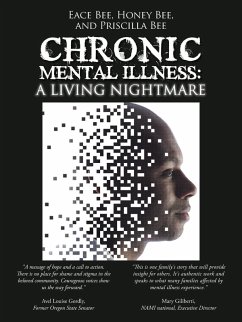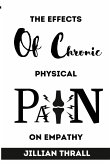Chronic Mental Illness: A Living Nightmare A plea for compassion, better understanding, and more funding to help those with mental illness and their caregivers. Eace Bee was a promising young student hoping to become an architect or a rapper when, nearing the end of high school, he was, by his own account, struck down by crippling mental illness. Diagnosed as a severe paranoid schizophrenic, he has for 20-plus years struggled with mood swings that can make him seem menacing, voices from animate and inanimate objects that only he can hear, and behavior patterns that have put him into hospitals again and again. His propensity for not taking his meds hasn't helped. In this unusual book edited by Pickles, Eace; his mother, Priscilla Bee; and his sister, Honey Bee, all debut authors, tell their intimate story of the sheer horror and stigma of mental illness. Priscilla-a teacher and school administrator and a member of the National Alliance on Mental Illness-adds numerous recommendations to the narrative. She calls for substantial increases in public spending to train mental health professionals, teachers, counselors, administrators, police, and others who come in contact with mentally ill or at-risk young people. Stronger emphasis is needed, she says, on job programs and early intervention that goes beyond merely funneling students into special education curriculums. For Eace, she says, what is so obviously required is long-term comprehensive care in an open and supportive environment. But her search for such a program has yielded disappointing results. Instead, the care Eace receives has been episodic, disjointed, not especially compassionate, and too often complicated by bureaucratic quagmires. Her point that the historic malady of racism has infected treatment of the mentally ill is well made. Succeeds in helping illuminate the realities of mental illness, what it does to families, and how it is treated-or mistreated.
Hinweis: Dieser Artikel kann nur an eine deutsche Lieferadresse ausgeliefert werden.
Hinweis: Dieser Artikel kann nur an eine deutsche Lieferadresse ausgeliefert werden.








